Baltimore Councilwoman Phylicia Porter gave her entire staff the day off after the election.
The staff of all Black women needed “some time to process” the loss of a historic win for Kamala Harris as the first woman, Black and person of Asian descent to be elected president.
Porter also needed time to decompress. But she also believes that the nation will elect a woman president in her lifetime.
“I recognize the additional barriers that women, especially Black women, face. I am hopeful about the possibility of a woman and Black woman ascending to the presidency, but I also understand the steep challenges caused by the combined biases of racism, sexism, and misogynoir — discrimination that uniquely impacts Black women and also plays a significant role in how women vote in today’s America,” Porter said.
The Baltimore Banner thanks its sponsors. Become one.
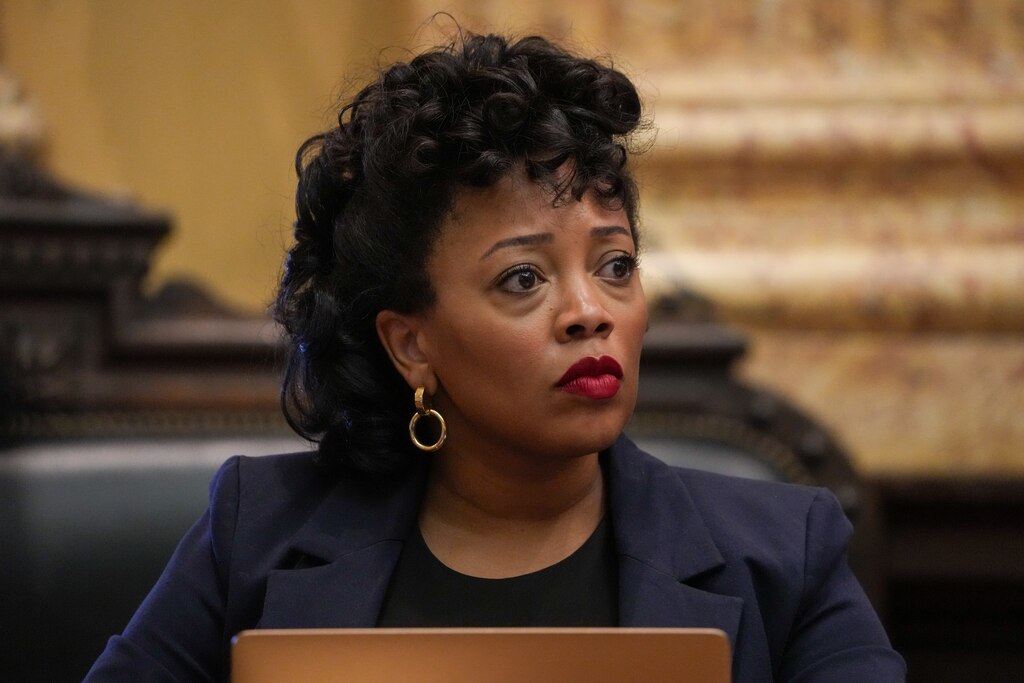
Loses by Harris and Hillary Clinton in 2016 — both to Donald Trump — have prompted some to question whether a woman will ever be elected to the highest office of this country. And despite a whirlwind campaign following Joe Biden’s dropping out of the race and naming Harris his successor, Harris failed to better Clinton’s results. In fact, the only demographic Harris improved upon in comparison to Clinton was among white college-educated women.
“I don’t know when someone is going to be able to break the glass ceiling. It’s the highest and the hardest for a reason,” said Mileah Kromer, director of the UMBC Institute of Politics. “It’s very tough to piece together a winning coalition of voters. I don’t know when it’s going to be.”
In four years, Kromer said, there will be plenty of candidates vying for the Democratic Party’s ticket.
“It might be a woman. It might be a man. They are going to be looking for a candidate who can win the Midwest and the Southwest,” she said.
“It’s going to be really, really competitive. And it’s not like I don’t think woman can’t compete. Because they can. I just don’t know how it will shake out,” she said mentioning potential names like Kentucky Gov. Andy Beshear, Illinois Gov. JB Pritzker, and Pennsylvania Gov. Josh Shapiro. “The Democratic Party will be packed with people from the right geography and people with the executive experience and experience leading at the highest level.”
The Baltimore Banner thanks its sponsors. Become one.
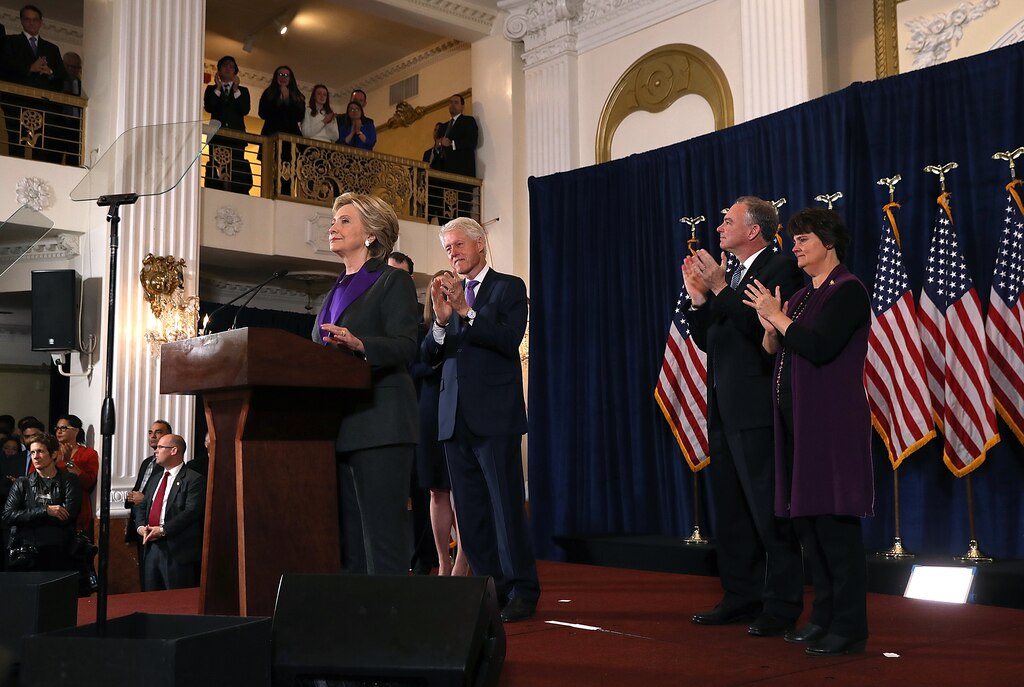
Catalina Byrd, a third-generation Republican from West Baltimore who has run for Baltimore mayor twice, doesn’t believe America will have a woman president in the next two presidential election cycles.
“Perhaps by 2036 or 2040,” she said, adding that by that time she expects “a change in ideology about women in leadership and their role in the country overall.”
Byrd also said she believes sexism runs deeper than racism in response to Harris’ recent loss.
Karen Miller, the state’s only Black woman political fundraiser, thinks it will take at least a half-century before this country will have a woman president.
“I don’t believe I will be here to witness it,” she said.
The Baltimore Banner thanks its sponsors. Become one.
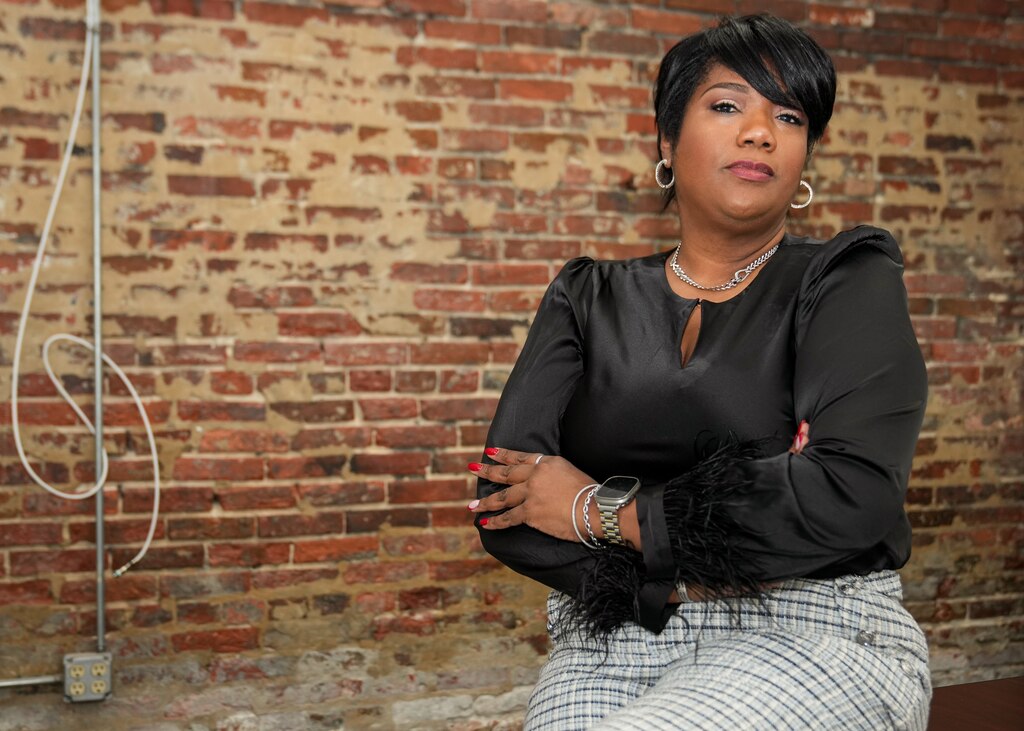
Miller said woman presidential candidates have been held back by white women.
“They made a conscious decision to sabotage what would have been historic opportunities to advance a woman to the highest job in the land,” Miller said.
“Hillary Clinton was judged by white women because she was ‘married to a cheat’ ”; Harris was judged by white women “because she is Black,” Miller said.
Del. Joseline Peña-Melnyk, who represents Prince George’s County, said she wants to believe wholeheartedly that she will see a woman elected president in her lifetime.
“However, recent history has shown us the challenges we face. Vice President Kamala Harris, a highly qualified and exceptional leader, exemplifies the competence and vision needed, yet even that was not enough,” she said. “Instead, we saw the choice made for a candidate with 34 felony convictions and civil liability for sexual assault and defamation — values I hope do not reflect the character of our nation.”
The Baltimore Banner thanks its sponsors. Become one.
Del. Kathy Szeliga, a Republican representing District 7A in Baltimore County, believes Clinton and Harris were “so far outside the mainstream of America’s ideals that they could not secure victory.”
“I look forward to the day when the best candidate for our nation’s highest office is indeed a woman — chosen not for her gender, but for the strength of her character and a commitment to the ideals that unite us all in American greatness,” she said.
Many Harris supporters were left wondering how she lost despite women making up the largest voting bloc in the country, with white women comprising the largest overall voting bloc in the nation. That, combined with Trump’s controversial comments about women and racial groups along with abortion access being a focal point in the election, further added to their ire.
Kromer said we need to stop assuming that there is a clear women’s vote.
“There is a woman’s vote, but it is mitigated by partisanship,” Kromer said. “These were white Republican women who by in large voted for the former president. A lot of conservative women thought they were doing something for women. They don’t think they cast an anti-woman vote.”
The Baltimore Banner thanks its sponsors. Become one.
While Kromer believes racism and sexism came into play, so did other issues: youth voters not showing up and “pocketbook” issues like the economy that swayed voters against Harris because she was a part of the current administration and couldn’t convince voters she would curb inflation.
“The party in power is held accountable for economic conditions,” Kromer said. “The Democrats really didn’t understand how big of an issue that was for people. "
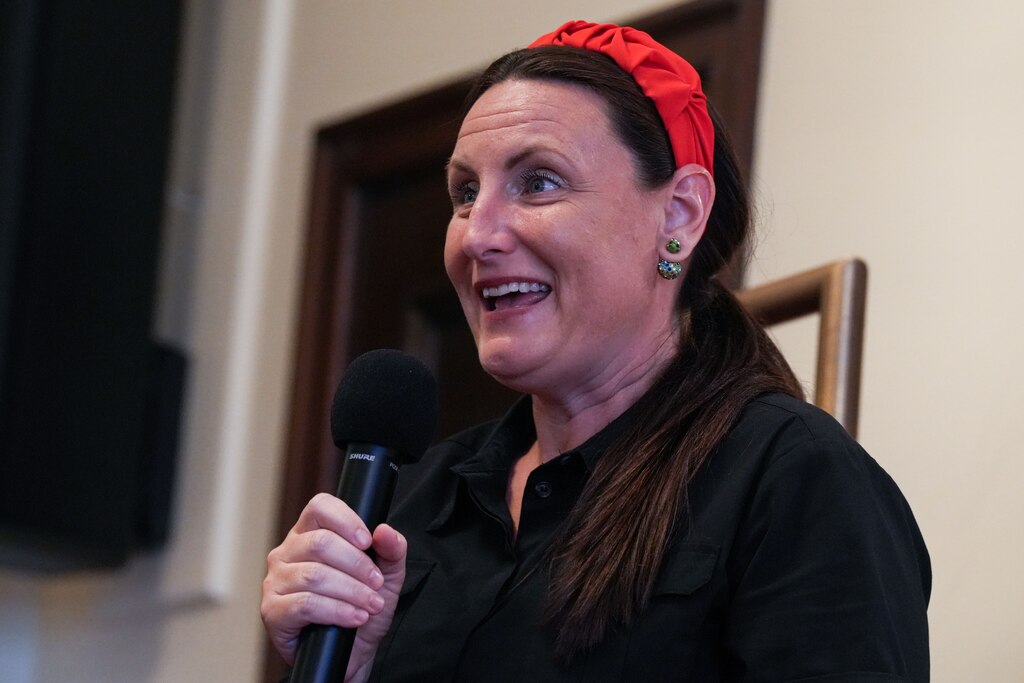
Kromer stressed that racism and sexism were also factors.
Porter believes woman candidates need to be relatable to many different types of people within her party, Democrat or Republican.
“For a Black woman, this candidate has to be able to cross barriers, racial, religious, economic, and societal — which as we’ve seen from this past election is very difficult and damn near impossible in today’s America,” Porter said.
The Baltimore Banner thanks its sponsors. Become one.
State Sen. Mary L. Washington, a Democrat representing District 43 in Baltimore City and Baltimore County, believes she will see a woman elected president in her lifetime. She believes more voters will eventually come to appreciate the characteristics Clinton and Harris had.
“A former secretary of state and a sitting vice president — each of the women offered to the American electorate all the experience, visions and temperament needed to lead and manage the internal and external affairs of our country,” she said.
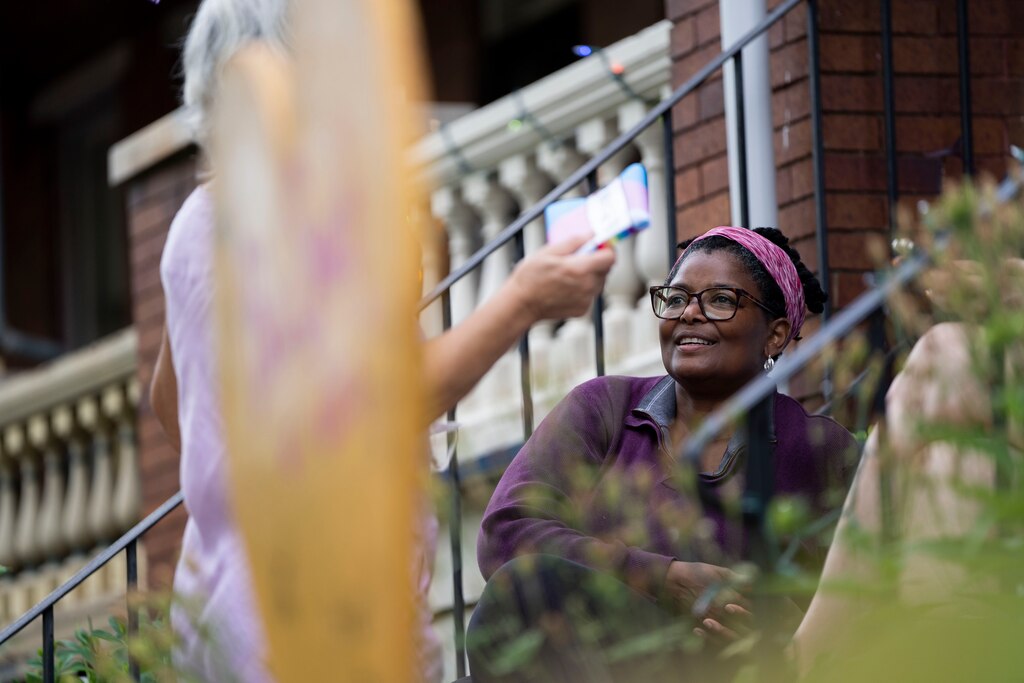
Both parties need to do a better job of creating more women governors and U.S. senators, natural pathways to the presidency Kromer said.
According to the Center for American Women and Politics, there are currently 12 women governors in the country.
“Women still face a pipeline problem,” Kromer said.
Claudia Towles, who previously ran for City Council in Baltimore’s 1st District, said challenging stereotypes and filling more elected positions with women are essential steps in paving the way for future female leaders.
”We have to be more resilient than our male counterparts. We cannot stop, nor can we give in to despair,” she said. “We must continue doing what many have done for decades: roll up our sleeves and get back to work no matter the odds ahead.”
Kromer also said women just need to keep trying.
“We’ve only tried it twice, and there have been far more men who haven’t won than women,” Kromer said.





Comments
Welcome to The Banner's subscriber-only commenting community. Please review our community guidelines.